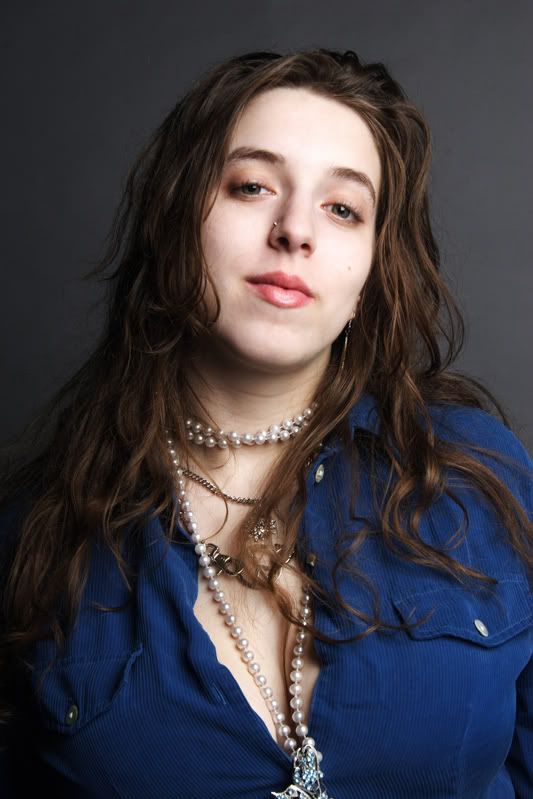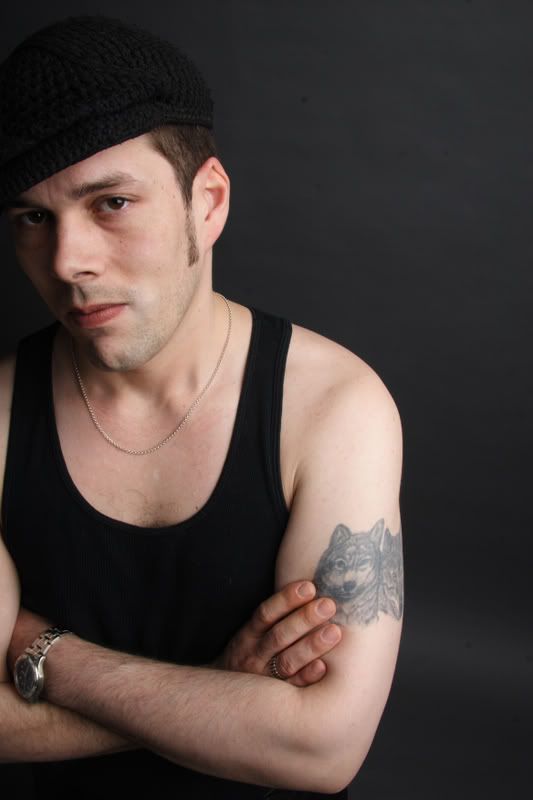Saturday, October 4, 2014
IF I WERE KING - OR PRESIDENT - OR EVEN MAYOR
Friday, October 3, 2014
U.S.A. STUDENTS PROTEST ATTEMPT TO MANIPULATE HISTORY, BRAINWASH YOUTH

Hundreds of Colorado high school students have walked out of class in the past two weeks to protest proposed changes to the Advanced Placement history curriculum.
The firestorm of protest was sparked by a resolution in August from Jefferson County school board member Julie Williams. When she heard that conservatives across the country were upset about the new AP history curriculum, she proposed a committee to review the district's courses.
The resolution stated that AP history classes should promote "patriotism and ... the benefits of the free-enterprise system" and should not "encourage or condone civil disorder."
"Basically, what I am asking for is for history to be taught complete," Williams said in an interview with the local Fox affiliate. "So the good, the bad, the ugly, without bias."
Jefferson County, Colorado's second-largest school district, has been in turmoil ever since a conservative majority was elected to the school board in November 2013, but Williams' proposal set off a new wave of unrest.
It started with 100 students, including Ben Smith from Standley Lake High School, northwest of Denver. He says students don't want their history censored and don't like that the resolution called for promoting the positive aspects of U.S. history.
"The negative parts of American history aren't necessarily unpatriotic," Smith says."We need to know those things so we don't repeat them in the future."
The protests spread throughout the district to more than a dozen high schools. Teachers also were angered: Four high schools closed for a day when teachers organized a "sick out." They say the board isn't listening to them — or parents — on a range of issues, including AP.
But the Advanced Placement curriculum, for which students can get college credit, is the flashpoint.
The revamped framework aims to de-emphasize rote memorization and instead develop critical thinking skills. But some conservatives say there's an anti-American bias.
Larry Krieger, a retired New Jersey high school teacher who is leading a national fight against the new framework, testified via video conference before Colorado's state board of education. He says the new materials don't mention events like D-Day or key historical characters.
"The founders are not discussed," he says. "Ben Franklin: not there. James Madison: not there."
But that doesn't mean teachers will leave out D-Day or the nation's founders, says Fred Anderson, a history professor at the University of Colorado who helped write the new framework.
"These are usually the very best teachers in a school. You don't have to tell them to talk about Wilson and Madison, and Franklin and Washington at the Constitutional Convention — they do that," he says. "They would find it incredibly condescending to be directed at that level, so the absence of mention is not in any sense an exclusion — and it's a misconception, I think, about the framework that that's the case."
In Jefferson County, after two weeks of protest, the original language about patriotism was dropped. On Thursday night, the school board stripped of the most controversial language and then passed the resolution, which still creates a committee to review course materials.
Meanwhile, the College Board, which administers the AP test, says that if a school or district censors essential concepts from an AP course, that course can no longer bear the "Advanced Placement" designation.
WHITE HOUSE SECURITY
EBOLA - SEEING BEYOND THE ENDS OF OUR NOSES
OPEN RUSSIA - DISSIDENT TYCOON SPEAKS OUT AFTER TEN YEARS IN RUSSIAN PRISION
WASHINGTON — The last time he was here, Mikhail B. Khodorkovsky was an oil tycoon and Russia's richest man in the midst of a political fight with the Kremlin. He had been warned to leave his country and stay away. But when he was done with his business in Washington, he defiantly headed home.
Eleven years later, Mr. Khodorkovsky returned here this week for his first public visit since then, now Russia's most famous political dissident after a decade in President Vladimir V. Putin's prison camps. He was a little older, a little grayer but no less defiant as he vowed to lead a political movement to counter Putinism in Russia.
"Russia has been wasting time these past 10 years," Mr. Khodorkovsky told an audience of American admirers at a dinner sponsored by the advocacy organization Freedom House on Wednesday night, in his first speech in the United States since being released from prison last year. "Now is when we must begin to make up this lost time."
Mr. Khodorkovsky's visit signals a re-emergence after a period of staying largely out of sight. Now living in Switzerland, with much but not all of his fortune gone, Mr. Khodorkovsky announced last month that he was re-establishing Open Russia, his foundation supporting civil society in his home country. In recent days, he has positioned himself as the leader of a renewed opposition intent on replacing Mr. Putin and bringing European-style democracy to Russia.
At age 51, he is an unlikely dissident. A onetime Communist youth leader, he grew up in Russia's emerging Wild West capitalism to take advantage of what he now says was a corrupt privatization system and led the country's largest private oil company, Yukos.
He eventually refashioned himself as a reformed robber baron now committed to freedom and rule of law, but when he challenged Mr. Putin's chokehold on Russian society, he was arrested in 2003 by armed officers who stormed aboard his private plane.
He was convicted on tax and fraud charges while his company was dismantled and largely absorbed by a state oil firm headed by a close Putin ally. When Mr. Khodorkovsky's sentence was almost up, he was put on trial again on essentially the same charges and given a new prison sentence. Mr. Putin pardoned him last December in a gesture to the West before the Sochi Olympics.
Ever since, many in Russia and elsewhere have wondered what Mr. Khodorkovsky would do next. He had agreed to stay out of politics until August, when he would have been released anyway. Now freed from that commitment, he is making clear that prison has, if anything, emboldened him in his desire to change his country.
"It's not just Putin that needs to be replaced," he told a small group of journalists and foreign policy specialists over lunch this week. "The entire system needs to be changed."
He said only a fraction — he estimated 12 percent — of Russians are currently European-oriented, but he hoped to convince many of the rest that they should be, too.
"I see that I might be able to offer myself to the European-oriented part of the population as its political representative," he said. "I don't know whether it will work out or not, but I'm going to give it a try."
He expressed some hesitance about the idea of becoming Russia's leader himself. "I really hope they find somebody else," he said. "Historically, the person in charge during the transition period most likely ends up in jail."
Then he added with a laugh, "I've had enough."
The idea may be fanciful anyway. Oligarchs like Mr. Khodorkovsky, much less those with Jewish roots, have never been especially popular in Russia, where they are blamed for fleecing the state of assets before Mr. Putin's rise.
Moreover, Mr. Khodorkovsky has not dared to return to Russia since his release. Nezavisimaya Gazeta, a Russian newspaper, wrote after his latest announcement that "the most famous political refugee risks gaining the image of an enemy of the country."
But his supporters said he should not be underestimated. And those he met in Washington were struck by his resolve. "I have to say I'm impressed by him," said David J. Kramer, the president of Freedom House, which promotes democracy and human rights around the world. "But he's still figuring out how he can make a difference. And it's obviously very difficult to do from outside the country."
He arrived in Washington with some of the same entourage he has had for many years, including his lawyers, Anton Drel and Maria Logan, and his longtime translator. His son, Pavel, 29, who was living in the United States when his father was arrested and later founded a group of his own to push for civil society in Russia, sat at his table at the Freedom House dinner.
From Washington, Mr. Khodorkovsky headed to New York for an interview with Charlie Rose and an appearance at the Council on Foreign Relations.
Those who knew him before prison were surprised that he seemed so much like the man they knew then, unbroken by his decade behind bars. If anything, he seemed stronger and deeper than before. The notion of prison as cleansing the soul and ennobling the spirit is a powerful motif in Russian literature (see Dostoyevsky) and Russian reality (see Solzhenitsyn).
"There is a part of the Russian spirit that is tied to jail," said Leon Aron, a Russian émigré who heads the Russian studies department at the American Enterprise Institute and also hosted Mr. Khodorkovsky this week. "There is a category of people who are not broken by the suffering in jail, but instead get crystallized there and become more serene but even more tenacious to the values that have been tested in jail."
Indeed, Mr. Khodorkovsky largely brushed off questions about his time in prison, describing it almost clinically and without emotion.
"For 10 years, you're thinking about what's happening where you are not," he told the journalists and Russia specialists. "You're thinking about family, which is where you are not. You're thinking about processes taking place in the country where you are not. You're thinking about what is happening outside the wire where you are not. And you go through a process of removing yourself from that."
Now that he is out, he has been adjusting to a new reality. And he said he knows Russia will not change quickly. He put the odds of Mr. Putin's being out of power in 10 years at 50 percent.
But he added that if nothing else, prison taught him patience. "You look at time differently," he said. "Ten years for me is not a long time."
THE EVIDENCE - HOW THE MONTREAL POLICE HELPED THIEVES DESTROY MY FAMILY
grasping at intangibles
Dedicated to partners in crime and kindred spirits.
Voyeurs and well wishers also welcome.
http://graspingatintangibles.blogspot.com/search?updated-min=2007-01-01T00%3A00%3A00-05%3A00&updated-max=2008-01-01T00%3A00%3A00-05%3A00&max-results
http://marlenejennings.liberal.ca/en/biography/
"Mrs. Carter's Rights were violated three times"
The three violations.
1. In 1996, the Montreal Police refused to file a report of the initial robbery. They have continued to refuse to act ever since.
2. In 2007, immediately following the death of my mother, the same group of criminals obtained a court order accusing me of being insane and dangerous. I was released from hospital unconditionally as soon as the doctors found out what my accusers had done and why.
After my mother's death, we learned that -
3. In 2005, the same group who call themselves "Partners in Crime" created a will in my mother's name when she was 92 years old and handicapped physically and mentally. My mother had been kept in total isolation by these criminals for a decade - until her death.
I believe there can be only one logical explanation for why the Montreal Police refuse to act against the criminals in this case:

Wears a large cross,
Quotes the Bible,
Kills cats by throwing them against a wall,
Sets fires for pleasure, and
Dreams of killing her parents in their bed
On October 7, 1996, I was attacked and robbed in my parents' Montreal home, where I had been living for two years while recovering from breast cancer. At the beginning of October my teenage niece, Dawn McSweeney, and her boyfriend Alex had moved in with us. Within a week of Dawn's arrival, I was suddenly attacked for no apparent reason and without any warning. In shock, I managed to call 911.
I appealed to Quebec Premier, Jean Charest. He wrote to say that the theft of all my jewellery and the fruit of my life's work and the personal treasures my husband left to me, is "a civil matter of an unfortunate nature." Grand larceny is a civil matter ?
After the robbery, Dawn's mother, Debbie McSweeney, our youngest sister, obtained power of attorney from both my parents. Every other member of the family, social services, fire protection inspectors and even police detectives, were barred from my parents' home thereafter.
In April, 2004, the home of our youth looked like something out of an Alfred Hitchcock movie, doors and windows overgrown with dead vines. I called for help and learned that my mother had been removed from her home. So I went to the police station to file a missing person report. The officer could not file a report - because Debbie, told him by telephone that she knew where mother was. To see your mother or get information about where or how she is, you have to file a civil suit. "But you will need a lawyer." But that would take months ! Can't the police check on my mother now ? Sorry.
The following is a matter of Public Record.
In June, 2007, we learned that our mother had died. She was buried on June 21, 2007 after being kept in total seclusion by Debbie and her associates from the day of the robbery. Suddenly, on June 26, I started receiving hate mail and threats to drop the robbery case were posted on my blog. I reported that to the police immediately. The next afternoon, June 27, two police officers came to my door with a court order to have me committed for a 30-day mental evaluation, accusing me of being insane and dangerous. I was released from the hospital unconditionally on June 29, 2007.
The Suburban weekly newspaper carried that story in two parts,on September 5, 2007 and on September 12, 2007.
The following is also a matter of Public Record.
Weeks later, I found out why a complete stranger wanted me silenced: My accuser, the mise en cause who applied for the court order, was one Kenneth Gregoire Prud'homme, a person I do not know and with whom I have never spoken. This same Prud'homme is named as the liquidator of a will in my mother's name created when she was 92 years old, handicapped mentally and physically and had been totally under the physical control and influence of Debbie and this group for a decade. Their will was notarized and executed, but OUR MOTHER DID NOT SIGN THAT WILL. All the children were included in the wills my parents had made. Only Debbie and Dawn McSweeney and Kenneth Gregoire Prud'homme benefit from the bizarre 2005 will.
Months later, I discovered Dawn McSweeney's own blog on the internet. The heading reads:
April 1, 2008
de l'Ouest-de-l"ile
West Island
Health and Social Services Centre
M.N.A. for Notre-Dame-de-Grace
6332 Sherbrooke Street West, Suite 205,
Montreal, Quebec
H4B 1M7
(File Number .........)
Local Service Quality and Complaints Commissioner
I am now 78 years old. I have been fighting for justice in this case since the day I was attacked and robbed, October 7, 1996. I will never give up. I want to make it very clear that I will not accept money or compensation" from anyone. I want my parents' true wills to be reinstated. I do not want anything from my parents' estate for myself. I want only what Dawn McSweeney and her associates stole from me. And I want the thieves tried in criminal court.
And still the Montreal Police do nothing.
I will not settle for anything less.
Phyllis Carter



